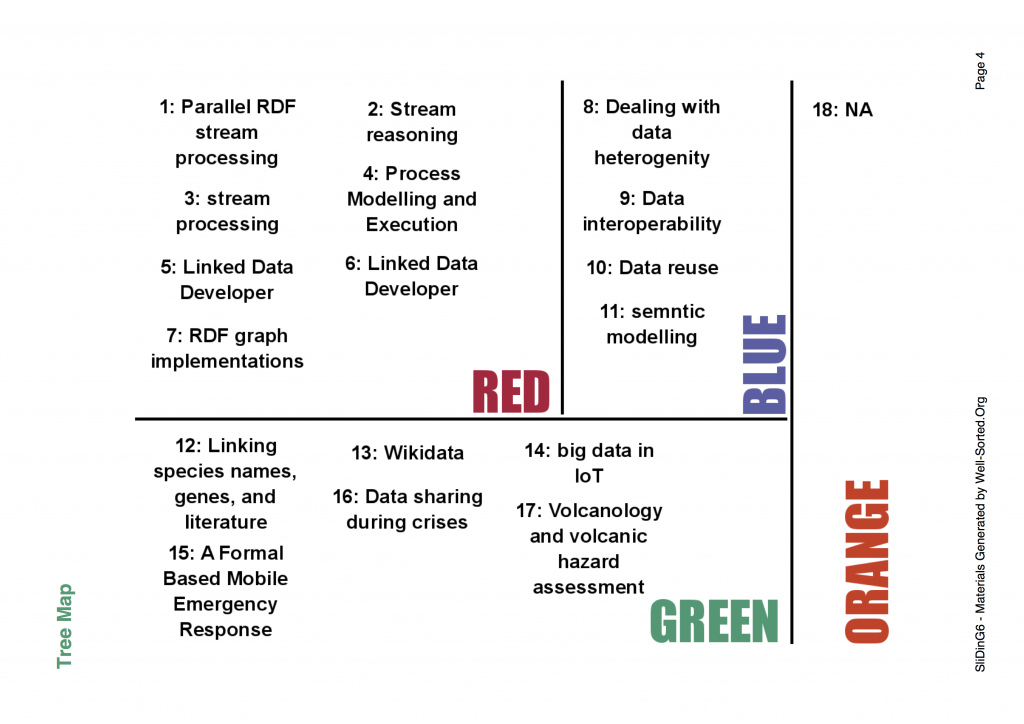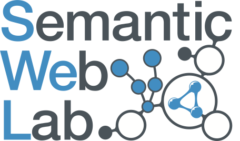On 29 May, the Heriot-Watt Semantic Web Lab hosted the sixth Scottish Linked Data Interest Group workshop (SLiDinG6), sponsored by the SICSA Data Science theme. There were 30 attendees from academia, government, and industry.
The main focus of the day was to share interests and knowledge around Semantic Web and Linked Data research and use across Scotland, with a view to fostering collaboration and interaction. We asked all attendees to fill out a well-sorted form two weeks prior to the event. Well Sorted allows attendees of events to put in titles and short descriptions of their interests. Once these are all received, attendees group them according to their own view of how they interact. The Well Sorted algorithm then takes all sortings and creates themed groups. Attendees were allowed to submit up to two responses. We received 17 responses, which were sorted into three groups as shown in the figure below. The full well-sorted results can be found here.

The full schedule for the day can be found on the event webpage. We began with lightning talks – 17 in total – to give attendees a feel for the breadth and focus of interest across the group. After lunch we had the first group session, based on the well-sorted groups. All attendees could see the topics in each group and attend whichever they felt suited them best. The groups discussed the first three questions outlined on the event webpage, with a focus on their interests within their particular group:
- What are the killer apps of the Semantic Web?
- What are the challenges from industry and government?
- Where are the synergies in Semantic Web research in Scotland?
Feedback was given by each group before the coffee break, and on this basis some attendees moved between groups.
After the coffee break, group discussions continued, with more focus on using the outcome of the earlier session to discuss the fourth question:
- Can we identify projects to push forward for funding?
At the end of the day, we summarised across the meeting what had come out of these groups, and various potential avenues which could be developed further were identified.
We discussed when we would like to hold the next event and agreed that holding SLiDInG events more often would be preferable. We agreed that the next one would be held around Easter next year (10 months away), possibly in conjunction with the UK Ontology Network Meeting, venue to be confirmed.
Throughout the day attendees were encouraged to contribute to the live blog of the meeting, which can be found here. This gives a much more thorough overview of the discussion of the day.
We are very grateful to SICSA for the support, which enabled this useful event to take place.


